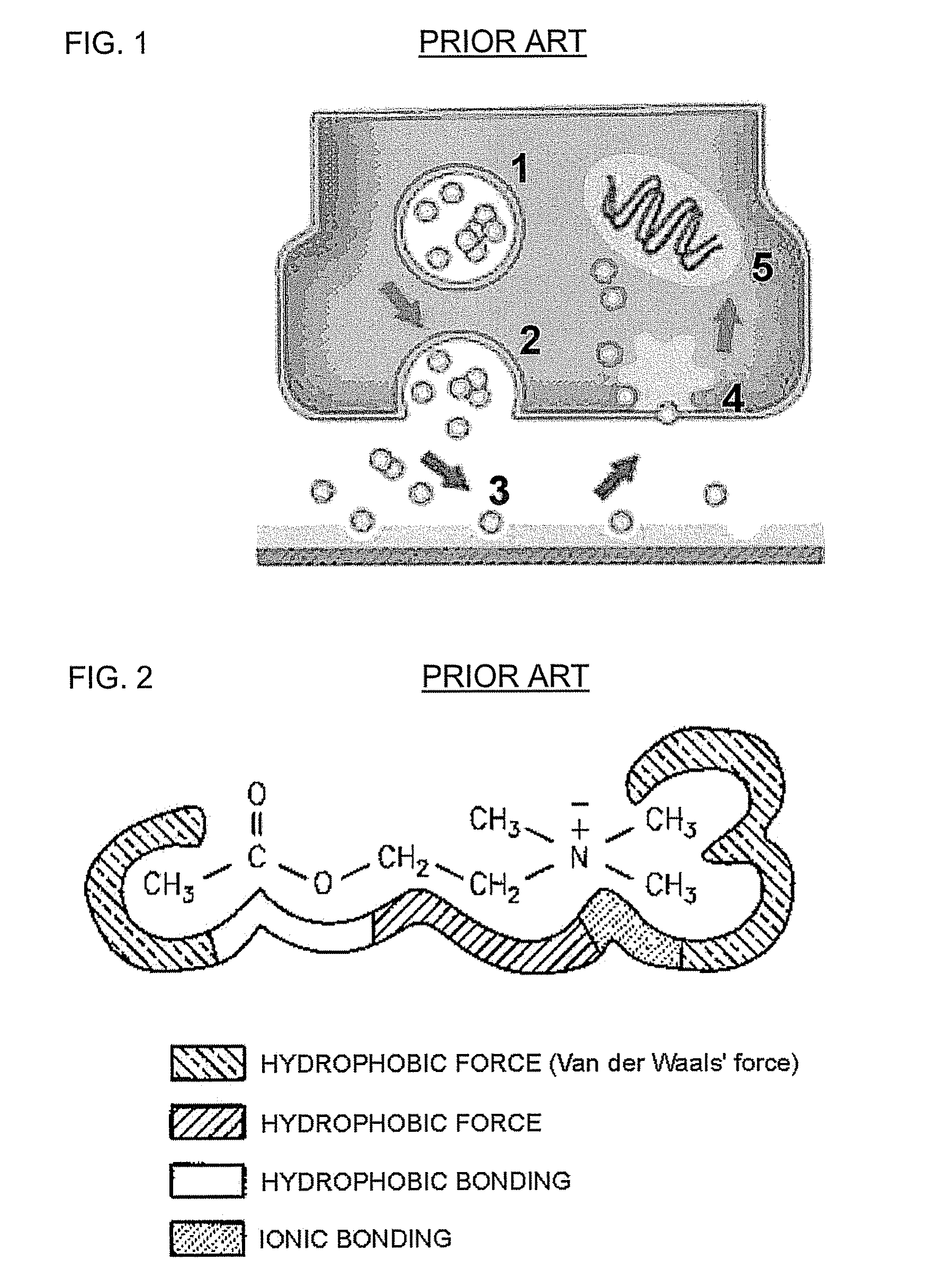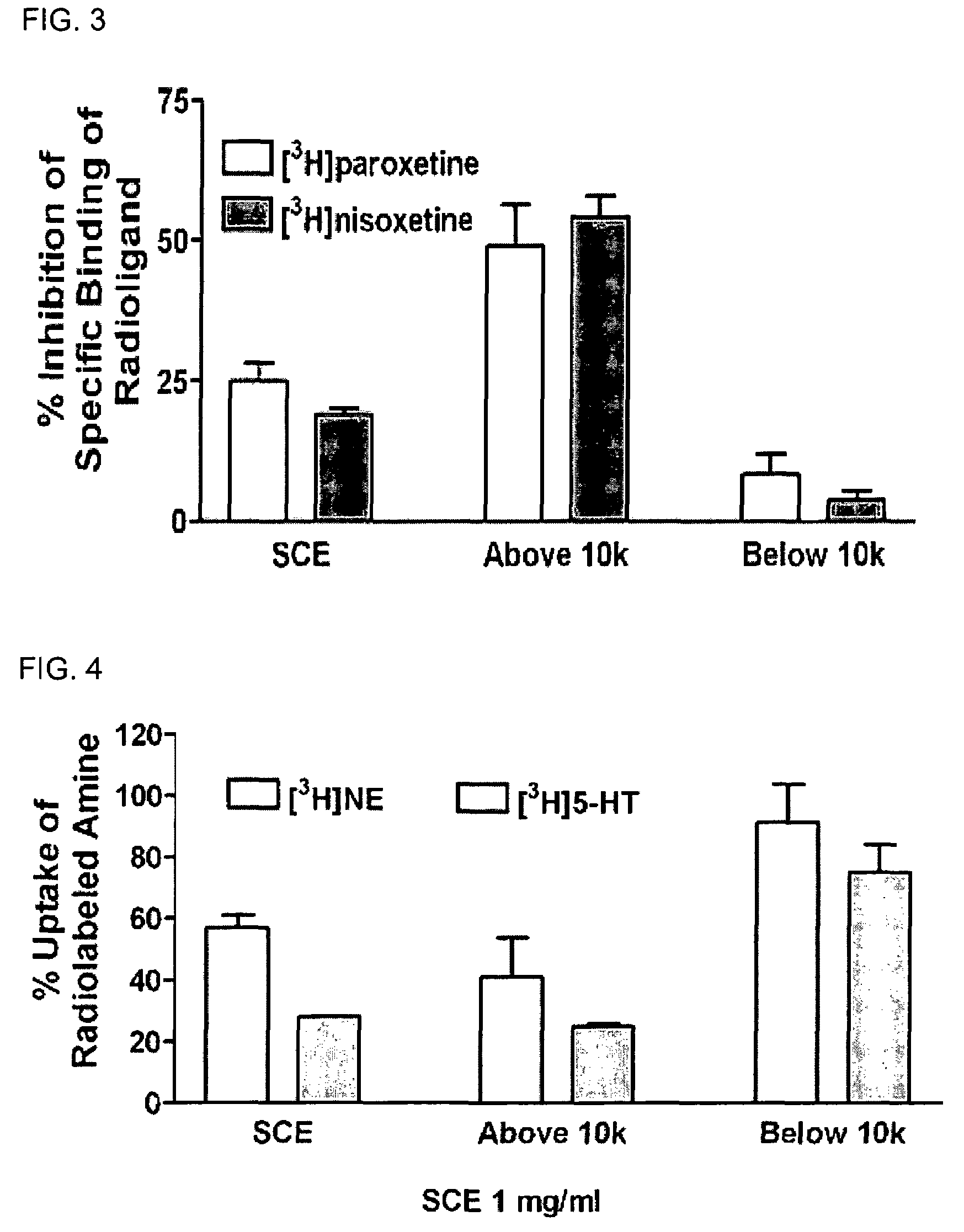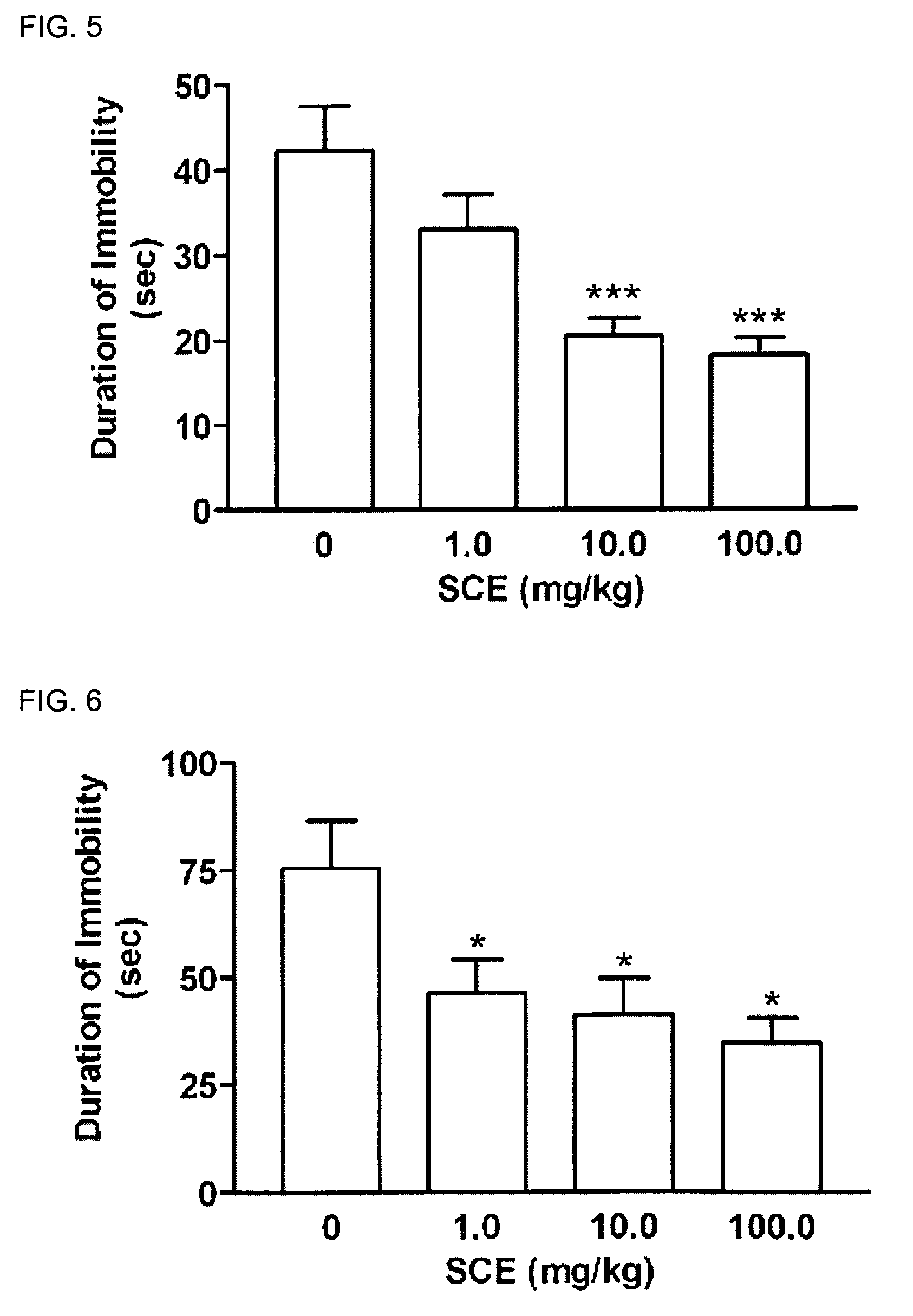Method for selectively inhibiting reuptake of serotonin and norepinephrine using yeast extract
a technology which is applied in the field of selective inhibition of reuptake of serotonin and norepinephrine using yeast extract, can solve the problems of reducing the efficiency of work and the ability of logical communication of patients, patients commit suicide, and deficiency of neurotransmitter, so as to maintain the balance in the human autonomic nervous system, and reduce premenstrual syndrom
- Summary
- Abstract
- Description
- Claims
- Application Information
AI Technical Summary
Benefits of technology
Problems solved by technology
Method used
Image
Examples
example 1
Preparation of Yeast Extract
[0148]Yeast (Saccharomyces cerevisiae IFO 2346) was cultured in media containing 2% glucose, 0.6% (NH4)2SO4, 0.1% MgSO4.7H2O, 0.2% KH2PO4, 0.03% K2HPO4 and 0.1% NaCl. The resulting cultures were centrifuged at 3,000×g to recover the yeast. The recovered yeast was added with 50× volume of phosphate buffer and 0.5% of protease (papain) and hydrolyzed at 30° C. for 6 hours.
[0149]The hydrolytes were placed in 100° C. water bath to inactivate the protease and centrifuged at 8,000×g to separate the supernatant. The supernatant was freeze-dried and the resulting yeast extract was referred to as SCE (Saccharomyces cerevisiae extract). SCE was separated into above 10,000 Da MW fraction (Above 10 k) and below 10,000 Da MW fraction (Below 10 k) by centrifuging at 3,000×g.
example 2
Preparation of Yeast Extract
[0150]Saccaromyces cerevisiae (raw yeast purchased from Jenico Co.), food-grade yeast strain, was cultured in a YM medium at 24° C. for 48 hours with the supply of oxygen.
[0151]The resulting cultures were centrifuged at 15,000 rpm for 15 minutes to remove a supernatant. The remaining yeast precipitate was washed twice and diluted with 10-fold (v / v) sterile water. The yeast was autolyzed at a high temperature of 50° C. by an autolytic enzyme which the yeast inherently has, and simultaneously yeast protein was hydrolyzed into peptides at a initial pH of 4.0 for 48 hours with an addition of 1% protease (papain 30,000) for accelerating the hydrolysis.
[0152]The resulting hydrolytes were centrifuged at 15,000 rpm to separate a supernatant as a yeast extract according to the present invention. The yeast extract was freeze-dried and labeled with “Sample 1” to be used in the following examples.
example 3
Preparation of Yeast Extract
[0153]1) Screening of Enhanced Yeast Strain.
[0154]Saccaromyces cerevisiae strain 7904, recognized as food-grade and obtained from the Korean Collection for Type Culture (KCTC), was incubated for 48 hours under stress from continuous 45 kHz-ultrasonic waves and vibrations resulting from a waterfall generated by a water-pump, to screen a surviving yeast strain resistant again the stress. The surviving yeast strain was plated on YM agar plate (containing 3 g / L yeast extract, 3 g / L malt extract, 5 g / L peptone, 10 g / L glucose, and 15 g / L agar) to screen an enhanced yeast strain forming a largest colony at a highest growth rate.
[0155]2) Incubation
[0156]The screened enhanced yeast strain was placed on YM medium and incubated in a fermentor supplied with oxygen, at 24° C., for 48 hours. The resulting cultures were centrifuged at 15,000 rpm for 15 minutes to remove a supernatant. The remaining yeast paste precipitate was diluted with 10-fold (v / v) 1% peptone buffe...
PUM
 Login to View More
Login to View More Abstract
Description
Claims
Application Information
 Login to View More
Login to View More - R&D
- Intellectual Property
- Life Sciences
- Materials
- Tech Scout
- Unparalleled Data Quality
- Higher Quality Content
- 60% Fewer Hallucinations
Browse by: Latest US Patents, China's latest patents, Technical Efficacy Thesaurus, Application Domain, Technology Topic, Popular Technical Reports.
© 2025 PatSnap. All rights reserved.Legal|Privacy policy|Modern Slavery Act Transparency Statement|Sitemap|About US| Contact US: help@patsnap.com



